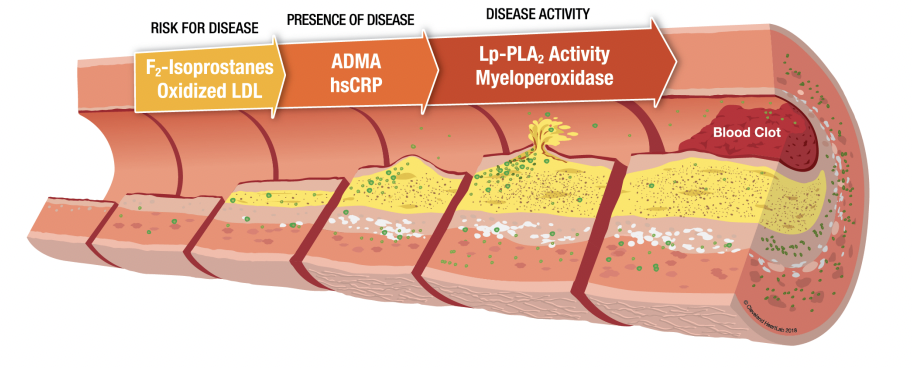Here’s why you should add the CardioIQ to your routine bloodwork.
The cardiovascular system is a complex organ system that is responsible for the transportation of blood, oxygen, and nutrients throughout the body to other tissues and organs. The transportation of these substances is crucial for life. Because of this, we want to ensure the cardiovascular system is functioning optimally.
At R3 Health we assess both your current heart health along with potential cardiac risk factors by utilizing the Cardio IQ. The Cardio IQ is a specialized test that checks markers that often get overlooked in routine bloodwork.
What is included in the Cardio IQ?
The cardio IQ is broken into four sections including a lipid panel, lipoprotein fractionation and ion mobility, apolipoproteins, and inflammation markers.
The first grouping of tests is a lipid panel.
The lipid panel checks common cardiovascular markers like low density lipoproteins, which are often referred to as the bad cholesterol. LDL levels serve as an indicator for cardiac health because they are associated with the production or buildup of plaque. It also looks at High density lipoproteins, or the good cholesterol. HDL aids in absorbing excess LDL in the body and transporting it to the liver to be metabolized and eventually removed. The lipid panel also measures triglyceride levels, which is a type of fat found in the blood. Elevated triglyceride levels put patients at a greater risk for a cardiac event.
The second grouping of tests is lipoprotein fractionation and ion mobility.
Lipoprotein fractionation and ion mobility is a way of categorizing lipoproteins based on their density, size, and shape. The sizing is categorized by small, medium, and large. Elevated small LDL particles is most commonly associated with heart disease because they can clog the micro vessels in the cardiovascular system. This portion of the test also looks at the LDL patterns, which can be A or B. Pattern A is associated with large and buoyant LDL particles. Pattern B is categorized by small, dense LDL particles. Pattern B is more likely to cause plaque buildup, putting individuals at a higher risk of developing cardiovascular disease.
The third grouping is Apolipoproteins.
Apolipoproteins are proteins that bind to lipids to create lipoproteins. Apolipoprotein A is the main protein component for HDL, or the good cholesterol. Apolipoprotein B is the primary component of LDL, or the bad cholesterol. When elevated, it indicates decreased clearance of cholesterol from blood.
The last grouping of cardiac markers is inflammation markers.
This looks at two inflammation markers that specifically look at inflammation within the blood vessels. These include High sensitivity C-reactive protein and LP PLA2 activity. When elevated, these markers are indicative of intravascular inflammation and can be associated with the formation of plaque in arteries.
Conclusion
Through the Cardio IQ, our team of medical experts can identify any potential issues with your cardiovascular health and generate a personalized plan that best meets your specific needs. This can include functional medicine interventions like supplementation and cardioprotective IVs, along with changes to diet and exercise routines.
Make your heart health a priority with Cardio IQ testing at R3 Health.
Interested in learning more about R3 Health and its offerings? Subscribe to our YouTube channel, where our team discusses our favorite functional medicine topics!





